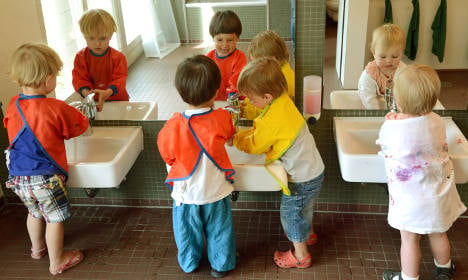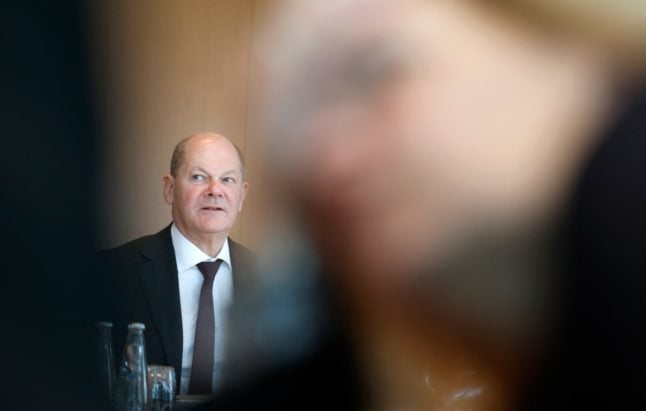From August 1st parents can choose between taking up a guaranteed nursery place for their child or receiving a payment of €100 a month for each youngster parents do not send to state-run day care. From August 2014, this will go up to €150 a month.
The Betreuungsgeld payment, one of Angela Merkel’s government’s pet projects, will only be for kids born after August 2012 and will be set up for a maximum of 22 months. The money kicks in only after parental benefits (Elterngeld) have finished – when the child reaches the age of 15 months.
To get their cash, parents must apply to regional offices, usually the same ones as give out parental benefit. But, embarrassingly for the government hardly any parents have so far, Der Spiegel reported on Wednesday.
The central German state of Thuringia, for instance, has not yet received one application for the payment, the magazine said, whereas in Mecklenburg-Pommerania there have been just 44 applications.
This has raised concerns in many areas that there will not be enough staff or nurseries to fulfill the government’s promise of a place for every child.
One reason for the slow take-up is that the Social Democrat Party (SPD), which runs the majority of regional governments, have not publicised the scheme – not least because the party bitterly opposed it from the beginning.
So now, just weeks before national elections, the child care fight is getting all the more political in Germany’s regions.
“It’s not our pet project,” a spokesperson from the Thuringia Social Affairs Ministry told Der Spiegel, “but the federal government’s. Why should we advertise a thing we’re skeptical about?”
Meanwhile in Bavaria, where the sister party of Angela Merkel’s Christian Democrats (CDU) the Christian Social Union (CSU) is in power, the social affairs ministry has sent out flyers to 55,000 households advertising the payment.
Of them, 2,755 households identified as being entitled to the payment got almost fully filled-in application forms asking them to just make four or five crosses on a sheet and sign. Still, of these just 500 have so far been returned, the magazine said.
The Local/jlb



 Please whitelist us to continue reading.
Please whitelist us to continue reading.
Member comments